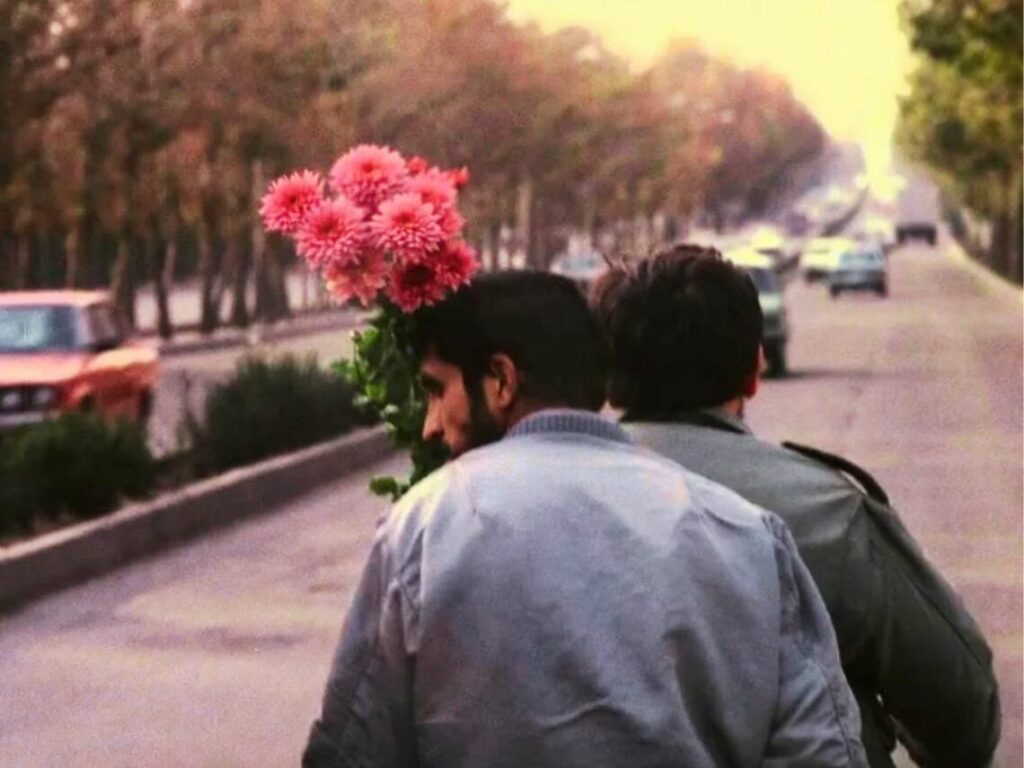The stunning docufiction of Abbas Kiarostami’s ‘Close-Up’
 Posted On
Posted On
(Credit: Kanoon)
The whole thing about documentary cinema is that it’s supposed to be grounded in reality, with filmmakers capturing their subjects in authentic environments. Of course, there is sometimes criticism of documentary directors who seem to manipulate their subjects in order to create a desired effect or narrative within what is finally shown on screen.
Iranian filmmaker Abbas Kiarostami avoided this ethical faux pax and managed to subvert the artistic expectation of the documentary film genre with his 1990 docufiction movie Close-Up. Docufiction is, as one might imagine, a combination of documentary and fiction that tries to capture what happened at one point while using technically fictional elements to highlight said reality.
Close-Up tells the true story of Hossain Sabzian, who pretends to be the Iranian filmmaker Mohsen Makhmalbaf. Thus, he connings a Tehran family into accepting him into their home under the belief that they would later star in his next movie. When Sabzian’s real identity is revealed, he is arrested and placed under trial, with Kiarostami documenting the proceedings.
What’s most interesting from an artistic perspective about Close-Up, though, is that Kiarostami does not merely tell the story but reconstructs it completely by getting the real people involved to play themselves and act out what had previously happened. This simultaneously blurs the distinction between fiction and reality and yet lends narrative weight to the true story behind the film.
In turn, Kiarostami can ask ethical questions about the boundaries of the documentary medium and interrogate Sabzian’s motives in the process. Sabzian ends up becoming something of a sympathetic figure, and he claims that he only tried to impersonate Makhmalbaf because of a) his love for cinema and b) because, for the first time in his poverty-stricken, heartbroken life, he felt like he could be respected as an acclaimed Iranian movie director would.
Sabzian longs to escape his mundane life and sees a brief act of fraud as a chance for momentary happiness. Close-Up has a natural beauty in the way it shows the brilliance of the cinematic medium, not only because Sabzian and the Ahankhah family can “play themselves” and thereby reflect on the events but also in the way Sabzian celebrates his love for the work of Makhmalbaf and the kind of escapism that movies themselves can provide.
It might be easy to see Sabzian as a manipulative, even morally wrong, individual, but Kiarostami positions him as a sympathetic figure downtrodden by the cruel realities of life. Sabzian’s trial is petty at best, but Kiarostami’s film manages to transcend its limitations by creating something far more significant, artistically universal, and meaningful.
Still, Close-Up raises questions about the ethical storytelling guidelines, particularly in the documentary format. In getting Sabzian, the Ahankhahs, Makhmalbaf and even himself to play their own characters, he highlights the ease with which one might be able to manipulate the truth for artistic or narrative gain.
With that in mind, we view Close-Up with an air of scepticism, unsure whether we can trust what we see. Objectivity is frequently assumed out of the box when we watch a documentary. Still, Kiarostami confronts his audience’s perception, even if captured moments of Sabzian’s trial offer a more cinema verité style of detailing reality.
Close-Up is considered one of Kiarostami’s best films and, on a broader scale, one of the best and most essential pieces of cinema ever made. It creates a stunning narrative of emotion and sympathy out of a relatively small act of fraud, simultaneously challenges our perception of reality and forces us to question the authenticity of the things we gaze upon. Documentary cinema is a brilliant if ethically treacherous medium, and with Close-Up, Kiarostami announced himself on an international scale as one of Iran’s greatest filmmakers.
[embedded content]
Related Topics


